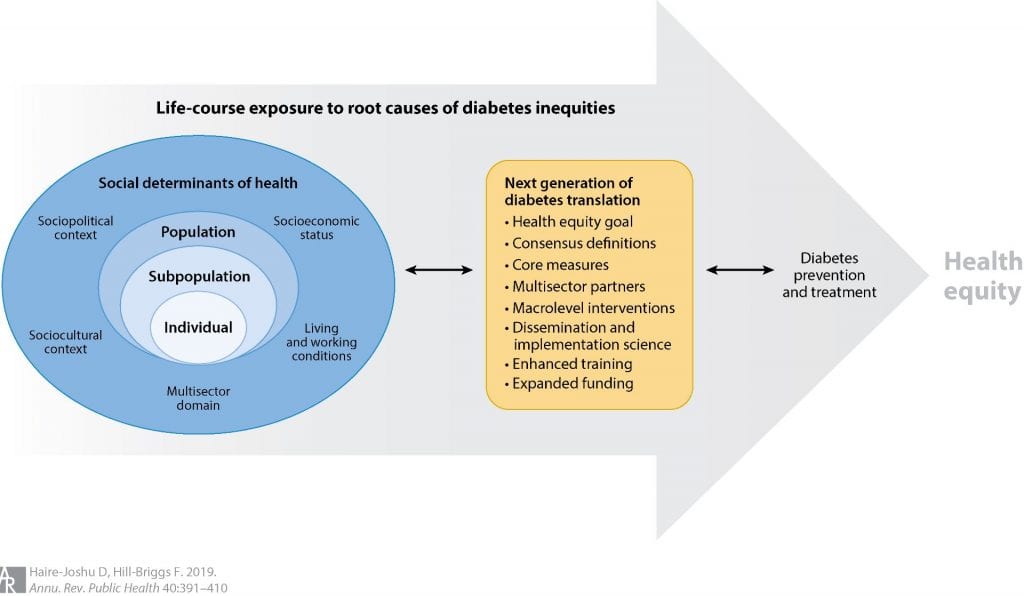
A “new generation” of diabetes interventions is needed to translate evidence into practices that focus on eliminating disparities by addressing the social determinants of health, according to a leading expert from the Brown School at Washington University in St. Louis.
“The past two decades have brought significant scientific advances in diabetes prevention and management, but the health impact of these advances has not been realized,” wrote Dr. Debra Haire-Joshu, Joyce Wood Professor at the Brown School, and co-author Dr. Felicia Hill-Briggs, professor of medicine at Johns Hopkins University. They cited wide disparities among the 30 million people diagnosed with diabetes in the U.S., with non-Hispanic blacks and Native Americans disproportionately affected.
The paper, published in the Annual Review of Public Health, detailed the established links between diabetes and social determinants of health such as poverty, food environment and cultural context. Traditional interventions that address individual knowledge and behaviors have been inadequate to make broad inroads in disparities.
“The next generation of diabetes translation research must focus not only on disseminating interventions to individuals but also on determining the root causes of disparities and key drivers of health behavior options,” the authors said. For example, current interventions may tailor recommendations or care to compensate for a patient’s income (e.g., avoiding high-cost foods, referrals to food pantries). Next-generation interventions might implement conditional cash transfer programs to support diabetes care.
Full article available here.
This story was originally published on March 21st, 2019 on the ASPPH Website. For the full story, visit their web page.